LSTS Books of the year
The Research Group on Law, Science, Technology and Society (LSTS) at the Vrije Universiteit Brussel (VUB) wishes to say goodbye to 2016 by celebrating the books that have marked our year of research work. In a kind of team-building exercise, we set up together a list that reflects the many interests, influences and shared concerns within our research group. We hope you will enjoy it, and wish you all a prosperous new year, full of inspirational reading.
Here go all nominations, in strict alphabetical order.
BALLARD, J. G., HIGH-RISE (SYDNEY; FOURTH ESTATE, 2011; ORIGINALLY JONATHAN CAPE, 1975)

The story of J. G. Ballard’s High-Rise depicts a luxury high-rise building as its affluent residents gradually descend into violent chaos. As the amenities of the high-rise break down and bodies begin to pile up, no one considers leaving or alerting the authorities, instead exploring the new urges and desires allowed by the building’s disintegration.
This book, that was also recently cinematized quite well, is extremely fascinating in the sense that it highlights how architecture and design and the way social life is planned all inside the high rise, as a socio-technical assemblage can influence people’s psyche, behaviour and social reality itself. Ballard is mostly famous through the war-novel Empire of the Sun which I read as a child, and also had a great impact on me.
Rosamunde Van Brakel
BERADT, CHARLOTTE, RÊVER SOUS LE IIIE REICH (PARIS; PAYOT, 2004)

Charlotte Beradt collected nightmares of women and men living in Berlin between 1933 and 1939. She was interested in documenting how the fear and violence of the Nazi regime permeated into the most personal moments of the loneliest hours of the night, into most intimate corners of the mind and its sub-conscious. I had not heard about the author before I stumbled upon a replay of Dans le rêve, la vision nocturne : Que nous racontent les rêves liés au travail ?, an audio documentary exploring through nightmares the violence of work in neo-liberal societies, inspired by Beradt’s contribution.
Her Das Dritte Reich des Traums (translated into English as The Third Reich of Dreams: The Nightmares of a Nation, 1933-39) is what could be described as a necessary book for anybody who thinks that surveillance is primarily about science fiction. It reminds us that surveillance has already damaged societies extensively and deeply, as illustrated by the man who dreamt that the walls of his house suddenly disappeared, and then dreamt that a law was passed establishing that all walls shall indeed disappear forever. Or by the woman who dreams she speaks a language she does not understand, just to make sure she might not repeat what she says in case she says something wrong. I wonder what smart cars are dreaming of, and in which language.
Gloria González Fuster
BOYLE, T.C., THE HARDER THEY COME (NEW YORK; HARPERCOLLINS, 2015)
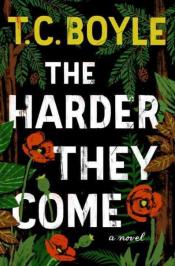
Another of my favourite authors. This hard and unsentimental book actually explains what Trumpism stands for, but was written before his ascent.
Where ‘white trash’ and government haters translate their visceral convictions into deeds. Confronting. How can law protect us from that?
Serge Gutwirth
BRIN, DAVID, EXISTENCE (NEW YORK; TOR BOOKS, 2012)
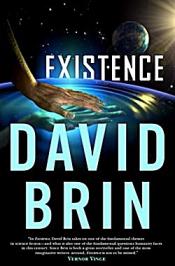
This incredibly rich hard science fiction novel brings us into a not so far and possible future (2050). Doom nor boom, the depicted world raises issues far beyond the boring categories of good and evil. Distributed intelligence and ‘smart mobs’, virtual humans as a guarantee for survival, extraterrestrial contacts through technical avatars of living being to far away to materially travel, power management and politics after the nation state, AI and Neanderthals and so forth, and so on.
Raises all kind of questions at the heart of LSTS.
Serge Gutwirth
DOBBS, MICHAEL, HOUSE OF CARDS TRILOGY (HOUSE OF CARDS, TO PLAY THE KING, THE FINAL CUT) (LONDON; HARPERCOLLINS FONTANA, 1989-1994)
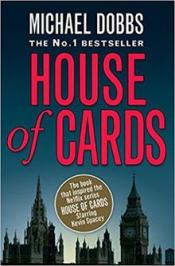
I am actually referring to the entirety of the House of Cards ‘franchise’ – i.e. the ‘original’ three novels authored by a UK controversial conservative politician, the television series adapted by BBC One and the Netflix on-going production. Mr Urquhart/Underwood’s story is addictive and I confess I too have spent sleepless nights reading the first book (so far) and following each entire Netflix’s season almost immediately after their release. Political aspirations of the main protagonists ask to reflect on many aspects of public life but there is at least one theme that my own work shares parallels with. Having watched the fourth season of Netflix’s TV series I could not help but reflect on the use of data, algorithms and relevant techno-infrastructure for particular political purposes. Or, broadly, on the use of technology at a service of politics. (A reader should be aware of some spoilers now.) Underwood’s main opponent to his (re-)election to the White House discovers unchartered potential in social media to learn (political) preferences and to influence (political) choices of the citizenry.
What is remarkable is that the fourth season was released in March 2016, relatively long before the US presidential elections took place. Dobbs could not foresee this in his 1990s books (these technologies, if existed, were in their infancy) but scriptwriters for Netflix in 2010s did foresee this. Media reports in aftermath of 8 November 2016 only confirm the contemporary relevance of ‘algorithmic governmentality’ (to borrow the term from Rouvroy & Berns, Cardon as well as Bellanova here and here).
Dariusz Kloza
DOSTOYEVSKY, FYODOR, DEMONS (LONDON; PENGUIN CLASSICS, 1842/2004)
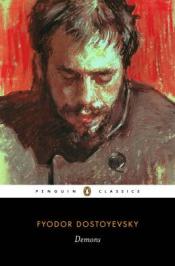
Dostoyevsky’s novel about a group of nihilist revolutionaries who are manipulated into violence is the ultimate examination of terrorist psychology and remains frighteningly relevant today.
It also shows how a work of fiction can at the same time be a great work of philosophy.
Christopher Kuner
DUMOUCHEL, PAUL AND LUISA DAMIANO, VIVRE AVEC LES ROBOTS. ESSAI SUR L’EMPATHIE ARTIFICIELLE (PARIS; SEUIL, 2016)
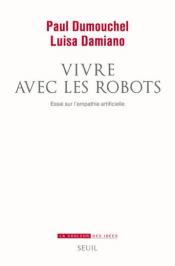
Steering clear of defunct dichotomies (mind/body, etc.) Dumouchel and Damiano discuss what it means to live with robots. They propose that robots challenge us to allow for ‘the heterogeneity of the cognitive’, highlighting that living with robots will change the relations between humans. This has political (not merely ethical) implications. (Dumouchel is actually a specialist on Hobbes.) The phenomenological inspirations that nourish this book provide for an unconventional understanding of the entanglement of reason and affect. That is so much more interesting than the current focus on either engineering synthetic emotions or rejecting them; the approach enables a conversation about how simulated empathy can contribute to human society.
Dumouchel is a philosopher who teaches at Ritsumeikan University in Kyoto, which explains his insights into Japanese interaction with robotics. Great complement to Chapter 6 of my Smart Technologies and the End(s) of Law.
Mireille Hildebrandt
EGGERS, DAVE, THE CIRCLE (SAN FRANCISCO; MCSWEENEY’S, 2013)
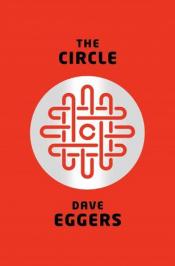
Both a fascinating and frightening novel, a page-turner. Eggers, an erudite and a perceptive observer of contemporary life, projects an alternative, technology-dominated reality. He plays with artefacts that are rather well-accustomed to a present-day ordinary human being: there is a social network site, a portable camera as well as ideas to digitalise and to index anything ever expressed. In the novel, these serve a given ideology, enjoying popular support. (Only two of the main characters have dared to disagree.)
Eggers reiterates a question – frequent in our academic circles – as to the shape of a society in which reflection usually comes too late. He invites to look far beyond the notion of privacy. The Circle writes itself in the legacy of great speculative fiction such as Orwell’s 1984, Huxley’s Brave New World and Atwood’s The Handmaid’s Tale. None of these were supposed to be an instruction manual. (A motion picture based on the Eggers’ book, starring e.g. Tom Hanks, is scheduled for release in early 2017).
Dariusz Kloz
FERRANTE, ELENA, FRANTUMAGLIA (TRANSLATED BY ANN GOLDSTEIN, LONDON; PENGUIN RANDOM HOUSE, 2016)

This book assumes that one has read her novels, on which I got hooked since my New York sabbath in 2009. But this is not a novel. It is a strange and somewhat incoherent set of writings about writing. There is repetition and those not familiar with her novels may put this book aside due to the many references to the narratives. But I love the way Ferrante dares to speak out for the author as nothing more – and nothing less – than the author.
Her book reminds me of Ricoeur’s insights in the meaning of text, Hustvedt’s and Butler’s salient insights into ‘the woman condition’ (pun intended) and in point of fact it describes what intellectual privacy requires in terms of courage, spunk and giving up on media hubris.
Mireille Hildebrandt
FRINGELI, CHRISTOPH (ED.), EVERYTHING ELSE IS EVEN MORE RIDICULOUS (BERLIN, 2015)
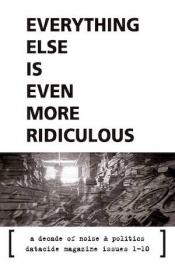
Subtitled ‘A decade of noise & politics: Datacide magazine issues 1-10’, this volume brings together the first ten issues of a fanzine born in the heat of the free party culture, and more particularly as the resistance to the UK Criminal Justice and Public Order Act 1994 surfaced and failed. It is fuelled by anti-surveillance claims, punctuated by a constant love of repetitive beats, obsessed by so-called post-techno (new) technologies, and loaded with vintage futuristic imagery, reminiscent of that time where you could write about terrorism whithout fear of your photocopier flagging you as potentially problematic.
It is genuinely concerned with the modern activist’s eternal question of what must be done in the face of the society of spectacle, as well as with many other slightly peripheral but still important questions such as whether it is good or bad that Tim Hecker might become one day a pop star. It also has a great title. All in all, this book is a true delight, and very useful for anybody wishing to think about how music is entangled with our data societies.
Gloria González Fuster
GOGOL, NIKOLAI, DEAD SOULS (LONDON; PENGUIN CLASSICS, 1871/2008)
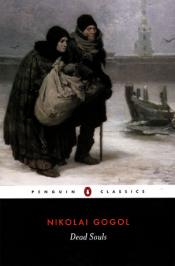
A swindler travels around provincial Russia buying up dead serfs so that he can pass himself off as a prosperous landowner, which allows Gogol to skewer the senseless bureaucracy and hypocrisy of Russian society.
A riotously funny tour de force of black humour that will seem all too familiar to those used to dealing with the EU bureaucracy.
Christopher Kuner
HOOD, CHRISTOPHER C. THE TOOLS OF GOVERNMENT (LONDON: MACMILLAN, 1983)
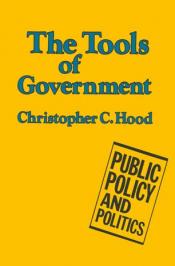
I have used this book in the 1990s to discuss surveillance practices by governments. For lawyers this toolbox is extremely rich. One understands that law is only focusing (mainly) on authority and leaves other important tools (‘nodality’ and ‘organisation’ in particular) out of the picture and hence within the discretion of the executive powers.
In the information society, this cannot be maintained. We should ask rule of law questions about the centrality of governments in networks and about their use of ‘organisation’ and ‘treasure’. Far more concrete on the ways government operate than, for example, Foucault. Years before Lessig, Hood has authored a toolkit for analysis that is still fully relevant today.
Paul De Hert
HOOD, CHRISTOPHER C. THE TOOLS OF GOVERNMENT (LONDON: MACMILLAN, 1983)

In his classical treatise, Hood asks what does any government possess at its disposal in order to govern a society. He takes a distinct, rather narrow perspective and makes a list of ‘tools’, similarly to an inventory of instruments and devices that e.g. a carpenter or a gardener use in their profession. This way Hood proposes to ‘look at things differently’ (as John Keating in 1989 Peter Weir’s Dead Poets Society) to better understand, scrutinise and choose appropriately among them. His method allows sketching a reasonably complete picture of any regulatory problem and evaluating choices (to be) made to address it.
Inspired by Hood, in my recent writings, I have attempted to make an early list of ‘tools to protect privacy’.
Dariusz Kloza
HUNT, LYNN, INVENTING HUMAN RIGHTS: A HISTORY (NEW YORK, LONDON; W. W. NORTON & COMPANY, 2007)
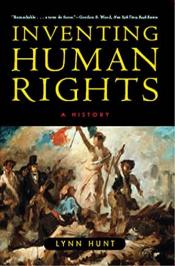
In Inventing Human Rights, Lynn Hunt provides an inspiring and vivid account of the human rights history. People who are interest in the evolution of human rights may finds this book of particular interest.
Lina Jasmontaite
HUSTVEDT, SIRI, A WOMAN LOOKING AT MEN LOOKING AT WOMEN (NEW YORK; SIMON & SCHUSTER, 2016)
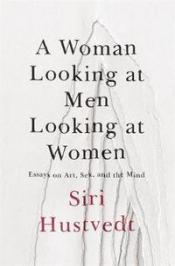
This is a fascinating set of essays written by an outstanding novelist, scientist, artist and philosopher. Having read The Blazing World (2014), I especially enjoyed her chapter on Bourgeois, but most of the essays are gems.
Written in a clear voice while unafraid of complexity, ambiguity or uncertainty; she dances her way through neuroscience, philosophy of mind, art history, feminism and phenomenology – and ‘yonder’ (to quote the title of one of her previous essays). Dancing, in the case of this volume, is not a matter of hopping around or cherry picking. The choreography is intricate, erudite but light.
Mireille Hildebrandt
KULESZA, JOANNA AND ROY BALLESTE (EDS.), CYBERSECURITY AND HUMAN RIGHTS IN THE AGE OF CYBERVEILLANCE (LANHAM; ROWMAN & LITTLEFIELD, 2016)
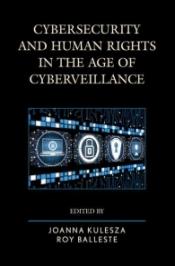
This book is a compilation of 9 chapters underpinning challenges of human rights protection on the Internet. Each chapter is written by (a) distinguished scholar(s) and therefore, there is no particular consistency between the chapters. At the same time, each chapter unfolds the core issues of cybersecurity and introduces debates surrounding Internet governance. The first two chapters lay the foundation for the rest of the book. The first chapter discusses the notion of cybersecurity whereas the second one ponders about the role that states (as well as other actors) should play within this domain.
The volume puts an emphasis on the multi-stakeholderism approach, which is deemed to be carry most potential to address complexity of cybersecurity (Chapters 6 & 7). The book can serve as a great reference point for case law, legislation, policy documents and other state of the art materials related to cybersecurity.
Lina Jasmontaite
LUCAS, EDWARD, CYBERPHOBIA: IDENTITY, TRUST, SECURITY AND THE INTERNET (NEW YORK, LONDON; BLOOMSBURY, 2015)
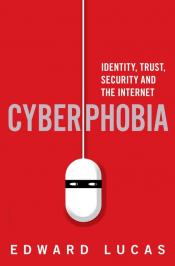
If you still think that cyber incidents happen only to the ‘others’, then this book is for you. In Cyberphobia, Edward demonstrates how vulnerable our identities and the concept of trust are in the online environment. Edward takes a novel approach to address risks and issues related to the Internet use. Instead of discussing massive data breaches and scary statistics (e.g., 47 data records are being lost or stolen every second), he creates a fictional couple named Chip and Pin Hakhetts.
At first, readers may find the fictional characters to be rather distant. They may be older and have different preferences when surfing online. But when one of couple decides to postpone a software update, the author bridges the gap between the Hakhetts and a reader. Edward provides many ‘innocent’ situations where Chip and Pin act online without further consideration about the potential consequences of their actions. All of us sometimes do the same, don’t we? In this way, the Hakhetts representing ‘lay people’ – a couple of ordinary Internet users – are no different than any of us. Reading about misfortune of two characters make online risks more real and tangible.
Throughout the book Edward uses non-techie language without loosing any substantial details, and issues ranging from websites’ certification and identity theft to cyberwarfare and Internet governance are made accessible for anyone. In 12 chapters the author conveys his story about the unreliable Internet and invites everyone to be as cautious online as they are offline. Even simple precautionary measures can enhance our online safety. Indeed, if identity is the value at which our society defines us, then why not to take care of it?
Lina Jasmontaite
MCEWAN, IAN, THE CHILDREN ACT (LONDON; JONATHAN CAPE, 2014)
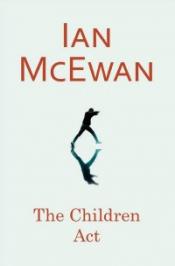
An important author turns to law and delivers. This book about a high court judge is rich in understanding of how legal professionals live, think, suffer and ignore. The central person, a women and judge, seems to live for and be lived by her job. Cases haunt her in her dreams and absorb her thoughts during day life. Signals about her own relation under threat are ignored or pushed aside. Confronted with difficult cases we see a lawyer at work, thoughtful about the consequences of her work and of the possible reactions of peers. Real life consequences are taken into consideration but within the limits of the profession. Her role is to speak the law and the law is something that is not possessed by her but co-created with others. These others are always present, even when playing the violin and performing with a colleague at the annuals gathering of legal professionals of the bench.
There is nothing glamorous about this controlled and narrowly defined life. This is a book about sacrifices that lawyers make to be successful and accepted by their colleagues.
Paul De Hert
MITCHELL, DAVID, CLOUD ATLAS (LONDON; SCEPTRE, 2004)
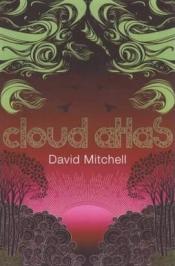
It has been only this year that I read Cloud Atlas by David Mitchell (I was inspired to do so after watching the Wachowskis and Tykwer’s movie). In this book, characters from different centuries are affected by various kinds of oppression and face situations in which someone wants to control them. Characters such as a reporter learning about conspiracy around a nuclear power plant or a clone that ‘ascends’ and gains own personality – as in the Plato’s allegory of the cave – learn that until now they have seen only shadows of the real world. When they discover the truth, they are transformed, and unable to return to the previous life.
The book reminded me the Snowden revelations and how they changed the world we live in and the information society. Thanks to Snowden we have learned about surveillance and that not only totalitarian regimes but also democratic governments struggle to monitor our activities online. Thus, like in Cloud Atlas, we now know too much about surveillance and what we have found out makes the return to the Internet and laws from before the Snowden affair impossible.
Michał Czerniawski
MOYN, SAMUEL, THE LAST UTOPIA: HUMAN RIGHTS IN HISTORY(CAMBRIDGE, MA: HARVARD UNIVERSITY PRESS, 2012)
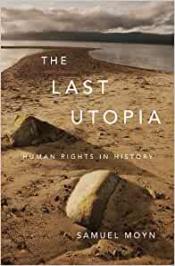
A devastating critique of the growth of human rights culture over the past two centuries by the leading historian of human rights law.
Christopher Kuner
MURAKAMI, HARUKI, 1Q84 (LONDON: HARVILL SECKER, 2009)

1Q84 is a love story, a mystery, a fantasy, a novel of self-discovery, a dystopia. Similarly, to his other novels what makes this book special is the surreal atmosphere and the wonderful fluid and musical writing. Although both dystopian 1Q84 is nothing like 1984.
Where 1984 is cold, eerie and realistic. 1Q84 is a surreal magical journey through Lynchian parallel worlds where food, music and cats play a big role.
Rosamunde Van Brakel
PEARS, IAIN, ARCADIA (LONDON; FABER AND FABER, 2016)
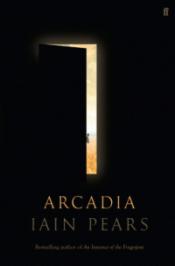
Iain Pears is one of my préférés because he always plays with time(s) and truth(s) in his novels (e.g. An instance of the fingerpost or The dream of Scipio). In Arcadia this is brought to a groundbreaking and fascinating level, wherein the present, the past and the future are intensively intertwined, raising subtle issues about utopias and dystopias, time-hopping and parallel universes, and he enacts eccentric scientists, naïve young people, feudal lords and societies, phlegmatic professors and much more.
Or: how the telling of stories may and does feed our imaginations. Pears is an author of the Chtulucene.
Serge Gutwirth
SCHREMS, MAX, KÄMPF UM DEINE DATEN (WIEN; EDITION A, 2014)
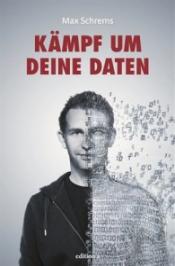
Some books are bought to be read, and some are bought to be carried in your bag in case you find yourself talking about the right to data protection to students who look at you as if none of it made much sense. You may then slowly take the book out of the bag, telling them that a long, long time ago, in a country not very far away from theirs, lived a student who looked very much like them and also wondered whether this privacy thing was really of any use for normal people.
The student, whom we will call Max, decided to give it a try, and he eventually managed perhaps not to change the world, but certainly to surprise part of it. And he also did some crowdsourcing, and travelled around, and published a book as you can see here, which proves that personal data protection is cool and thus good for you.
Gloria González Fuster
THIRLWAY, HUGH, THE SOURCES OF INTERNATIONAL LAW (OXFORD; OXFORD UNIVERSITY PRESS, 2014)
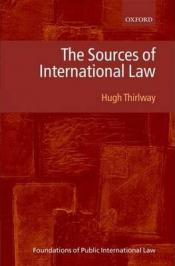
A meticulous and clearly-written examination of the sources of public international law that deals with jurisprudential issues that are highly relevant to technology regulation as well.
Christopher Kuner
WALTON, JO, THE JUST CITY (LONDON; CORSAIR, 2015)
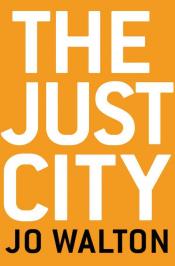
The Greek gods Athene and Apollo collect 10,000 human children from throughout history, and place them on the island of Thera prior to its volcanic destruction with the main idea to put Plato’s Republic into practice.
This is a fascinating read and raises a lot of questions about democracy, politics and society and even artificial intelligence and how some ideas sound great in theory but when put into practice cause a lot of unexpected problems.
Rosamunde Van Brakel
ZAMYATIN, YEVGENY, WE (LONDON; PENGUIN, 1993)
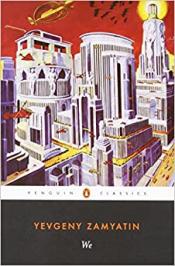
A dystopian sci-fi novel written in the early 1920s and one of the first books to have been banned by Soviet censorship. A truly fascinating read – while it was regarded as criticizing the socialist and communist ideology, one cannot be left without a chill realizing how visionary Zamyatin was. The story is set in the future and describes a society under a harsh control over individuals and the eternal rebellion of people against the attempt to destroy the humanity in people.
Although quite unknown, We influenced the writing of Huxley’s Brave New World and Orwell’s 1984, among others.
Irina Baraliuc
Editors
This list for 2016 was put together by Dariusz Kloza and Gloria González Fuster, who sincerely thank all participants for their precious collaboration.
Note by the editors: Accompanying pictures are included for illustration purposes, and might or might not correspond to the cover of the edition the reviewer actually read.
